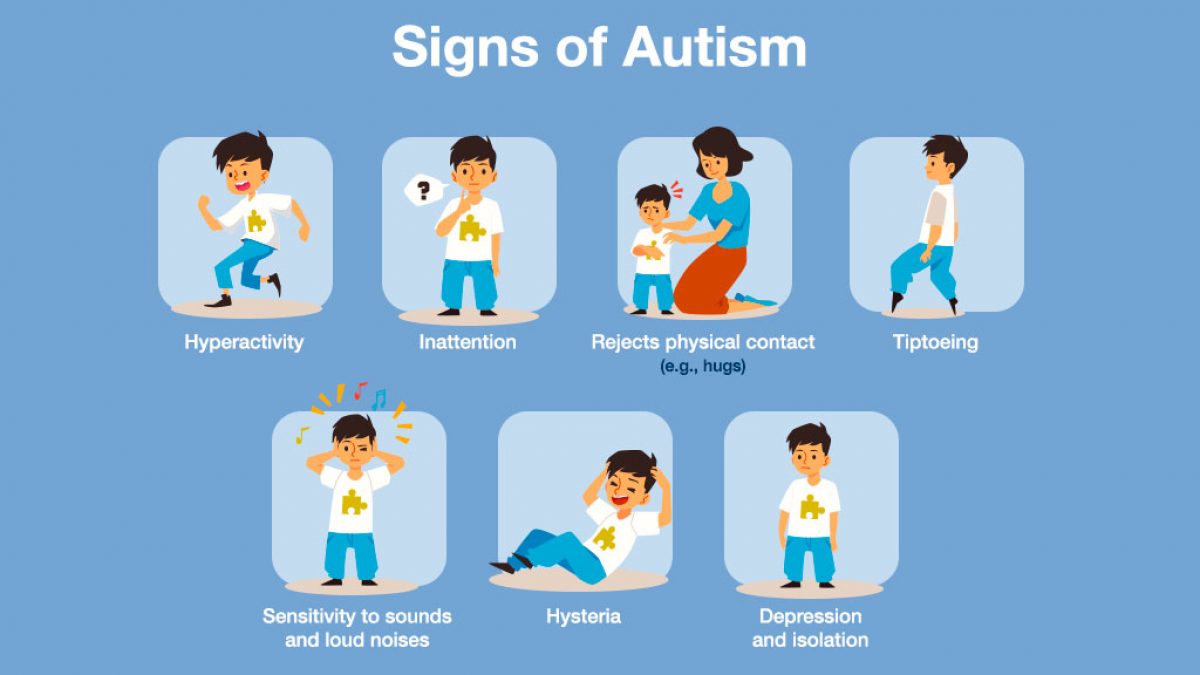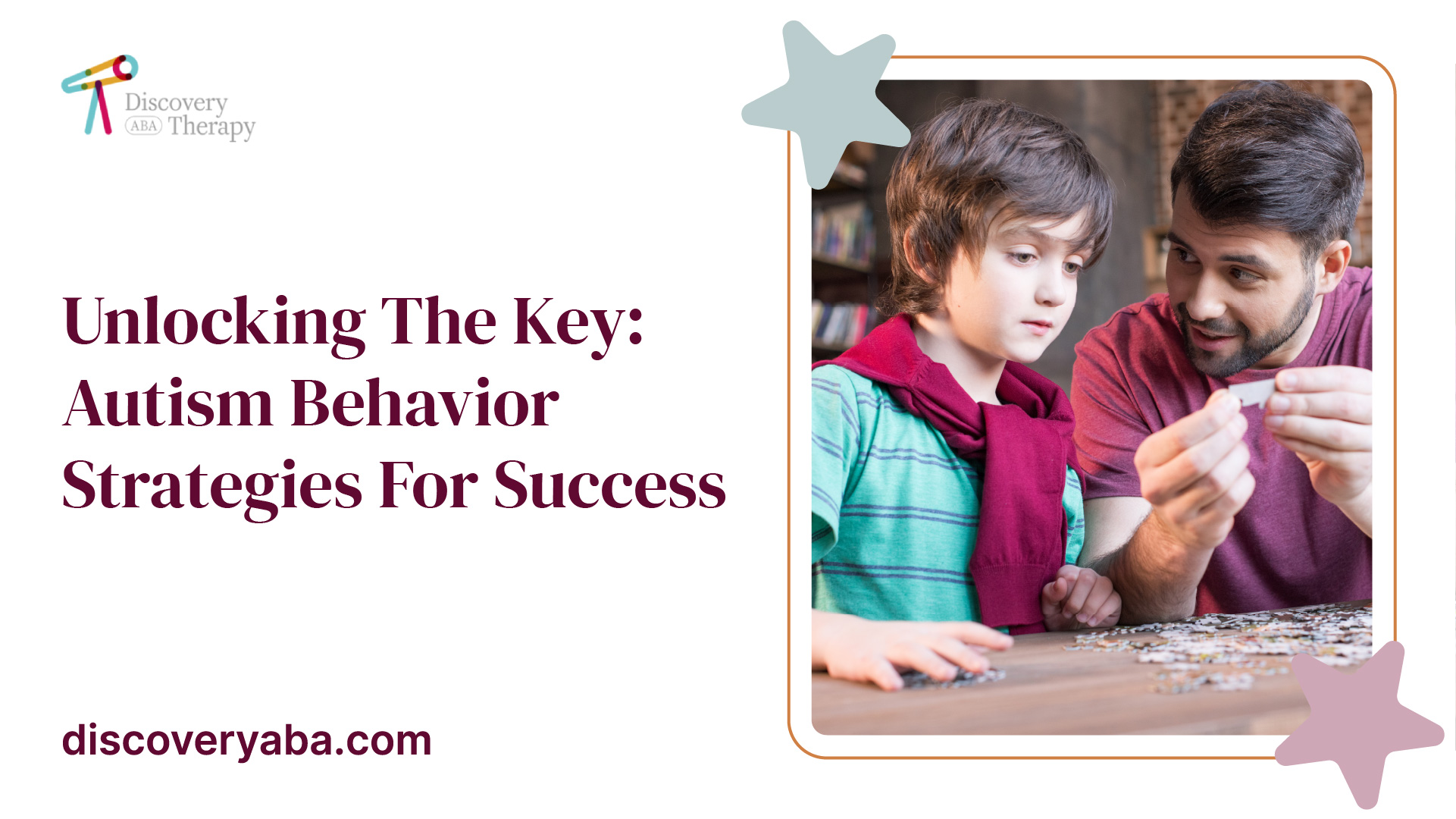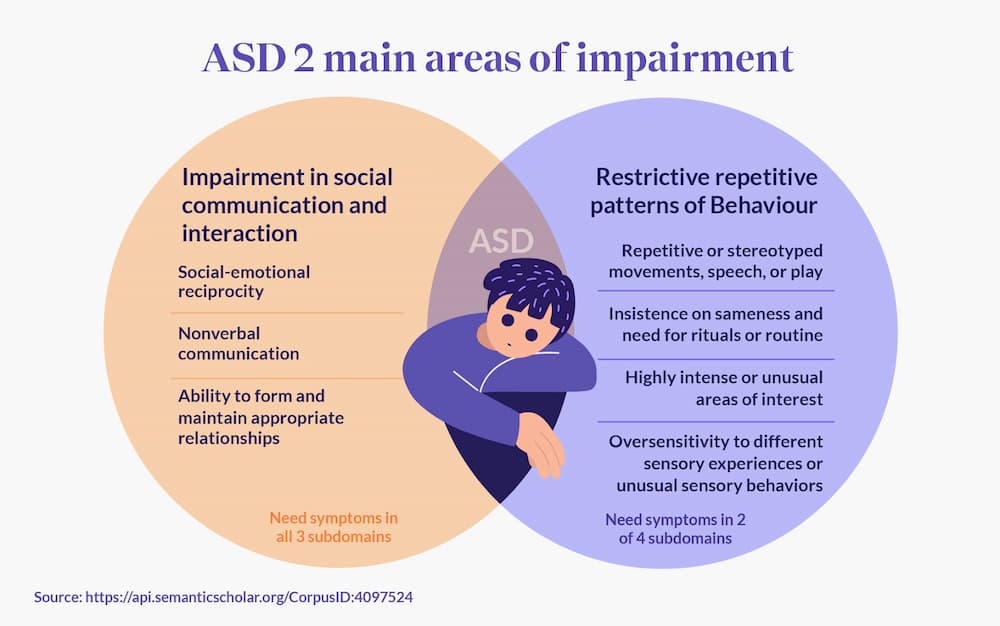Trick Signs and Symptoms to Acknowledge in People With Behavioral Autism
When you experience someone with behavior autism, identifying key signs and signs and symptoms is crucial. You may observe challenges in social interactions and interaction, in addition to a solid demand for routines. Additionally, sensory level of sensitivities can result in frustrating experiences. Recognizing these traits can enhance your assistance and interventions, yet there's more to uncover about how these habits manifest in day-to-day situations. Let's discover what these indicators truly resemble.
Obstacles in Social Communications
When you interact with someone on the autism range, you could notice they have problem with social cues and interaction. These difficulties can make social communications feel frustrating for them. You may see them avoiding eye get in touch with or standing too close or too away throughout discussions, which can develop misunderstandings. They may not notice body movement or face expressions, making it harder for them to determine just how others are feeling.
Additionally, you might discover that they favor regimens and familiar settings, which can restrict their readiness to engage in new social scenarios. They could chat regarding their interests in fantastic information without seeing if you're interested when they do engage. This can cause prejudiced conversations that leave you really feeling separated. Recognizing these challenges can assist you approach communications with empathy and persistence, cultivating an extra comfortable environment for both of you.
Trouble With Verbal and Non-Verbal Interaction

Acknowledging these signs is important, as it helps you better support and involve with people on the autism range. By recognizing their interaction obstacles, you can foster a lot more purposeful connections and provide a more helpful atmosphere.
Repetitive Behaviors and Routines
Communication challenges often go along with other signs of autism, such as recurring behaviors and a strong preference for routines. You might discover that individuals with autism frequently take part in particular, repetitive activities, like hand-flapping, shaking, or duplicating phrases. These behaviors can offer convenience and a feeling of control in an often frustrating globe.
When they comply with a structured schedule,Routines are similarly crucial; numerous individuals thrive. You might discover that adjustments to these regimens can lead to considerable distress. If they have a daily routine of eating breakfast at a details time or following a specific path to college, any type of disruption can create anxiousness.
Recognizing these patterns helps you recognize their actions and supply support. By accommodating their requirement for regular and permitting repeated activities, you can develop a more comfortable atmosphere that eases their challenges.
Sensory Sensitivities

Usual Sensory Triggers
Sensory level of sensitivities can substantially affect day-to-day life for people with autism, as particular stimuli usually cause frustrating responses. Typical sensory triggers include loud sounds, intense lights, and solid smells. You could see that unexpected sounds, like sirens or alarm systems, trigger stress and anxiety or distress. Fluorescent lights in stores can feel awkward and extreme. Structures can likewise play a significant duty; harsh materials or certain food appearances might be unbearable for you. Additionally, crowded locations can bewilder your detects, making it tough to concentrate or kick back. Recognizing these triggers can assist you handle your atmosphere much better. By understanding what impacts you, you can take steps to decrease discomfort and improve your day-to-day experiences.
Behavior Responses Discussed
Comprehending your behavior responses to sensory level of sensitivities is crucial, as they usually expose just how you communicate with the world. You might observe that particular noises, lights, or structures overwhelm you, resulting in anxiousness or discomfort. When faced with these stimuli, you could take out, cover your ears, or also react aggressively. These responses aren't simply quirks; they're your way of dealing with overstimulation. You may also find on your own seeking details sensory experiences, like deep pressure or peaceful atmospheres, to aid ground yourself. Identifying these patterns aids you comprehend your requirements better and can lead just how you communicate them to others. By acknowledging your sensory level of sensitivities, you can function towards developing a setting that feels more workable and comfortable for you.
Coping Strategies Review
Identifying your sensory sensitivities is just the primary step; currently it's time to explore coping methods that can help you handle those experiences successfully. Start by producing a sensory toolkit customized to your demands. This could include noise-canceling headphones, fidget playthings, or soothing scents. Establishing an organized routine can also supply predictability, lowering stress and anxiety around sensory overload. When you feel overwhelmed, take breaks in a peaceful area to collect yourself. Practicing mindfulness methods such as deep breathing can aid ground you in the moment. Additionally, interact your demands with those around you; having encouraging family and friends can make a significant difference. Bear in mind, discovering what works ideal for you might require time, so be open and patient to trying brand-new methods.
Limited Passions and Focus
While many people establish a large range of interests, those with autism frequently show restricted passions and an extreme focus on certain subjects. You might discover that someone with autism can spend hours delving into their preferred topic, whether it's a particular type of train, a details movie, or a clinical principle. This intense focus isn't just a leisure activity; it can become a main part of their identity and social interactions.
You might locate that discussions rotate around these rate of interests, and they may Aba Therapist Near Me struggle to participate in wider subjects. For them, these concentrated rate of interests supply convenience and a feeling of proficiency. While it is necessary to urge exploration of brand-new topics, appreciating their enthusiasms is equally important. By recognizing and acknowledging these restricted interests, you can promote a helpful setting where they really feel valued and understood, allowing for more purposeful links and interactions.
Emotional Law Troubles
People with autism usually encounter challenges in psychological regulation, which can be affected by their extreme focus on particular passions. You might notice that when an individual is deeply participated in a favored task, they can experience strong emotions, whether excitement or stress. This intensity sometimes makes it tough for them to change equipments or manage their feelings when points don't go as intended.

Irregularity in Developmental Landmarks
When it involves developmental milestones, you'll notice that individuals with autism usually show a large range of irregularity. Some may hit milestones in a timely manner, while have a peek at this website others may lag behind or progress at a different speed. You might see a youngster excel in language skills however struggle with social interactions. This variance can be complex, as standard benchmarks do not constantly apply.
It's important to acknowledge that each individual's journey is one-of-a-kind. Observing these patterns can assist you comprehend their toughness and requires better.
Frequently Asked Concerns
Exactly How Is Autism Detected in Children and Grownups?
To detect autism in children and grownups, experts evaluate habits, interaction skills, and social communications. If a specific meets the criteria for autism spectrum problem., they typically make use of standardized tests, meetings, and observations to determine.
Exist Various Kinds Of Autism Spectrum Disorders?
Yes, there are various sorts of autism spectrum problems, including Asperger's disorder and prevalent developmental disorder-not or else defined. Each type differs in extent and attributes, so recognizing these distinctions can aid you far better assistance people with autism.
What Treatments Are Effective for Individuals With Autism?
When thinking about efficient treatments for individuals with autism, you'll view website locate options like Applied Behavior Analysis, speech treatment, and work-related treatment. Each approach can assist improve interaction, social abilities, and everyday functioning customized to individual requirements.
Can Individuals With Autism Lead Independent Lives?
Yes, individuals with autism can lead independent lives. With the best assistance, abilities training, and resources, you can aid them create self-sufficiency, manage day-to-day jobs, and grow in different atmospheres, fostering their freedom.
Just How Can Households Support Loved Ones With Autism?
You can support your loved ones with autism by developing an organized environment, urging their interests, practicing perseverance, fostering interaction, and promoting social skills. Commemorate their accomplishments, no issue how small, and build a supportive area.
Although numerous individuals on the autism range can comprehend and use language, they often face significant challenges with both spoken and non-verbal interaction. Recognizing these indicators is crucial, as it aids you much better support and involve with individuals on the autism spectrum. You might notice that individuals with autism typically engage in specific, repeated actions, like hand-flapping, shaking, or repeating phrases.Sensory level of sensitivities can significantly affect day-to-day life for individuals with autism, as specific stimulations frequently cause overwhelming reactions.When it comes to developmental turning points, you'll observe that individuals with autism frequently show a large variety of variability.